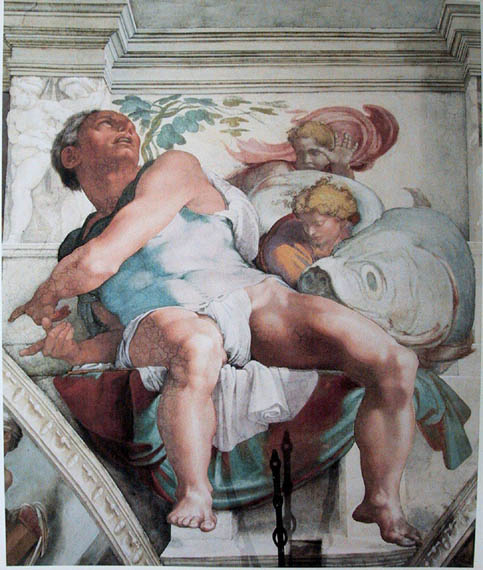I met a remarkable man last Saturday - Canon Andrew White who ministers at St George's, Baghdad. His church is involved in a whole variety of ministries through the Foundation for Relief and Reconciliation in the Middle East. Every week St George's feeds around 500 men and women as part of their Food Relief Programme. Every month around 2000 people attend their medical clinic which is provided free of charge.
While we may be on slightly different pages theologically, the 'Vicar of Baghdad' was an absolute inspiration. His church is a light in the midst of darkness and is bringing reconciliation to a fractured and divided city. One of the only Christian churches in a violent city, St George's is famous world wide for leading community transformation. What can we learn from this remarkable ministry in Scotland?
 |
| Canon Andrew White and the real Andy Murray |
Perhaps one of the greatest tragedies is that so often the church in Scotland is not leading community change. But that hasn't always been the case. While Dr Thomas Guthrie (1803-1873) was one of the finest preachers of the Free Church in the 19th Century, his greatest legacy was surely as a social reformer. This is summed up on his statue in Edinburgh which declares he was ‘a friend of the poor and the oppressed’. His legacy extends far beyond the church and Guthrie impacted the whole country with his vision for the marginalised. His legacy epitomises the two great priorities of the church; truth and love.
When Guthrie was called to Old Greyfriars in 1837 he walked the streets of the Cowgate and the Lawnmarket and was appalled by the 1-2000 'ragged children' he saw all around him on the streets. He wrote, campaigned, organised, spoke and inspired until these children were fed, loved and educated. Guthrie didn't stand around wringing his hands, he got involved. His memoirs contain the following quote which sums up his daily work; ‘…it was not the disease or death – it was the starvation, the drunkenness, the rags, the heartless, hopeless, miserable condition of the people – the debauched and drunken mothers, the sallow, yellow, emaciated children – the wants both temporal and spiritual, which one felt themselves unable to relieve – that sometimes overwhelmed me…’ (Memoirs and Autobiography, p 157). It is encouraging to hear that even the great Thomas Guthrie got overwhelmed sometimes!
 |
| Food Relief Programme in Baghdad |
Like Guthrie, we might despair about the needs of our communities today but Christians can (and should) be at the forefront of community change. We sometimes think that most people went to church in the past but Guthrie talks about his early visitations in Horse Wynd in Edinburgh where less than 5 in 150 people ever went to church. Guthrie saw some awful sights in his pastoral work. Amidst the rapid growth and large scale Irish immigration, Edinburgh had developed the most awful social problems. Many in the church wanted to ignore these problems but Guthrie faced them head on with a coherent Christian vision.
We all need each other and we all need strong cohesive communities. Our cities prove Guthrie's point that 'the solitude of a crowd is the most painful of all.' So many people (both in Iraq and Scotland) are living in fractured and broken communities. To bring about community transformation we all need to get involved, we need to listen to local people and we need to help provide the facilities and resources that can help with community transformation. As Canon Wright said of his ministry we need to 'love, love and love.' It is hard to think of a better example of Christian love in action than St George's in Baghdad feeding and healing people.
 |
| St George's Baghdad |
Most of all we need to be salt and light in a decaying world. Creating community should be natural territory for Christians. As Keller says 'God created all things to be in a beautiful, harmonious, interdependent, knitted, webbed relationship to one another. Just as rightly related physical elements form a cosmos or a tapestry, so rightly related human beings form a community. This interwovenenss is what the Bible calls shalom, or harmonious peace' (Generous Justice, p 173).
It must be easy for Canon White to despair. Guarded by a small army, travelling to church in an armoured convoy, members of his church being killed on a weekly basis would cause most of us to head for the nearest plane home. But he continues to bring reconciliation to a bitterly divided city and nation. Canon White is slightly more cheerful than his predecessor who came to Iraq about 2700 years earlier. Despite Jonah grumbling about the mercy and grace of God, and bitterly complaining about the lack of air conditioning, the gospel impacted Nineveh in a powerful way. Nearly 3 centuries later the gospel is still impacting lives in Iraq. God is building his church and the gates of hell shall not prevail.
As Christians we should know what real, harmonious community looks like and feels like. It is that shalom that Keller mentions - something we want for every community in Scotland (and Iraq). Not just people reconciled with each other but more importantly with the God who lives in perfect community in the Trinity. It can only ultimately come through the gospel influencing our nation and transforming individuals and communities. But it won’t happen until Christians roll up their sleeves and get involved in our broken and fractured society. If St George's can do this in a war zone, what excuse do we have in Scotland?
 |
| Jonah by Michelangelo |
No comments:
Post a Comment